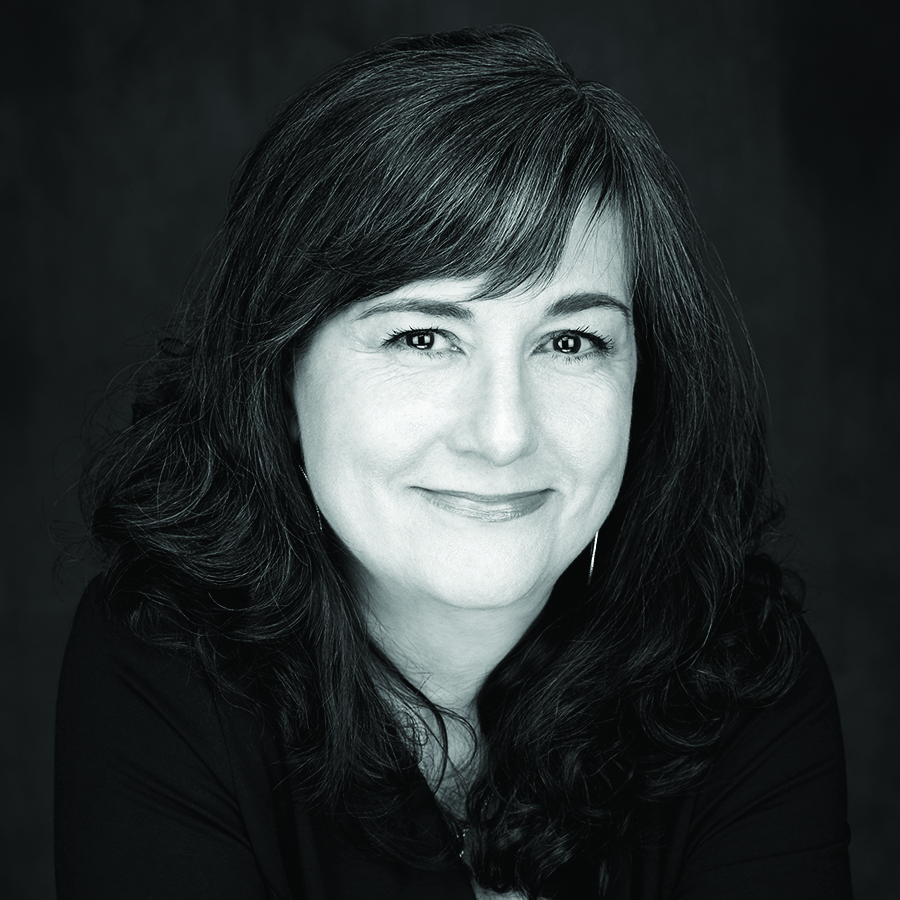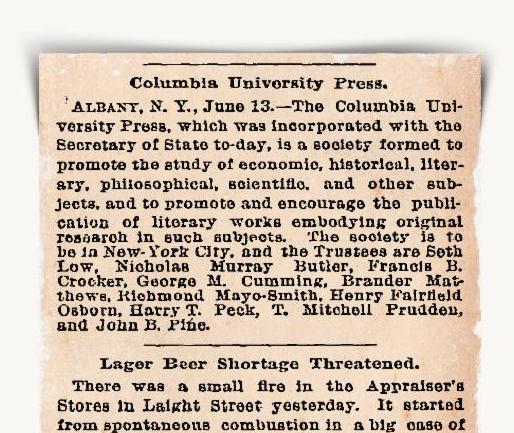My Time at CUP: Mark Saunders

“Columbia drew on the ethos of the city — we were expected to channel our mission-driven impulses through a businesslike approach to making books, a discipline that served us all well.“
Mark Saunders
DIRECTOR, UNIVERSITY OF VIRGINIA PRESS
COLUMBIA UNIVERSITY PRESS, 1991–1995
- SALES REPRESENTATIVE, 1991–1993
- NATIONAL SALES MANAGER, 1993–1995
> While my real academic degrees are from elsewhere, when people ask me where I went to graduate school, I often answer, “Columbia University Press.” It wasn’t only the immersion in Kristeva, Bourdieu, and the like that I got from selling their books; the second floor of 113th and Broadway in the early 1990s felt a lot like a good academic department. There were politics, too, but mostly it had the old-school newsroom fug of passion and shared purpose. There were, of course, characters, psychic breaks, and doomed office romances. Lunch was like breakfast (Mama Joy’s or Tom’s Diner); we went out to dinner together at the West End (where you could still smoke inside) and went back to work. The director, John Moore, had pressed shirts in his credenza like an executive from Mad Men. The designers were brilliant; it was a bit hard to believe those elegant books emerged from such a threadbare environment.
Like some kind of cosmic crossroads, a lot of brilliant publishers went through CUP in those years, current directors and sales gurus, talented designers and editors. One of the best of them, Jennifer Crewe, who once dropped off an edited manuscript on her way to have a baby, now runs the place. Crazy as it felt at times, Columbia drew on the ethos of the City—we were expected to channel our mission-driven impulses through a businesslike approach to making books, a discipline that served us all well. I learned to be a manager and a mentor there. My first boss, Geoff Hughes, like other colleagues who came and went from the trade, had escaped from the snake pit of Simon & Schuster. At our first lunch together—over margaritas in the catacombs beneath Rockefeller Center—he asked me what my next job would be. I thought I was fired, but he was really making me think about my career and how to deal generously with people who work for you. He sent me out on the road in a leased Honda Civic—my sales territory was the thirteen original colonies—and every night we called in our reports onto voice mail, telling stories about buyers and bookstores, many of which are now gone. No cell phones or e-mail yet, but by the time I took over as sales manager the seeds of digital publishing were already being nurtured under primitive grow lights by forward-looking people like James Raimes and Kate Wittenberg. I used to joke that CUP was like the TV show Taxi, where only one of the drivers was actually a cabbie. It’s true that many of us were aspiring poets or writers, academics or artists or musicians. Some of us left to pursue other things, but what we loved about Columbia drew us back in, and many of us turned into publishers. We have the Press—the people and the books—to thank for that.
1 Response
Leave a Reply
You must be logged in to post a comment.









A beautiful and touching tribute to CUP and how thoughtful of a person Mark was. It’s wonderful when you have a career experience like this early on. I truly believe it encourages you to pay it forward to the generations of publishers to come. Mark truly saw that. Thank you to Columbia University Press for shepherding one of the best in the industry.